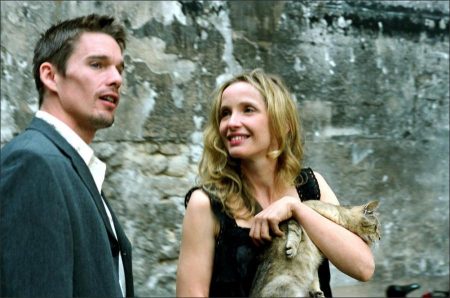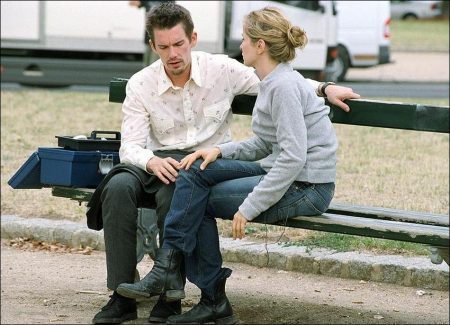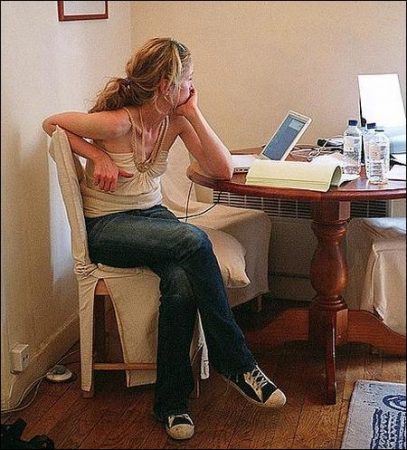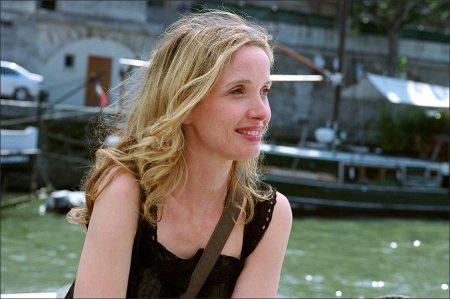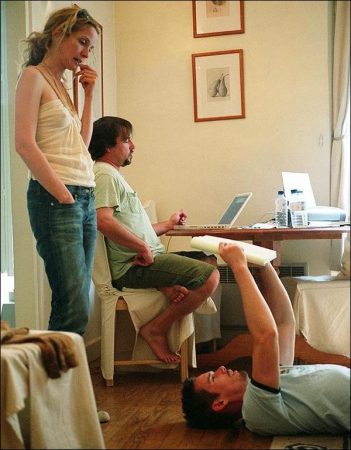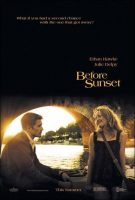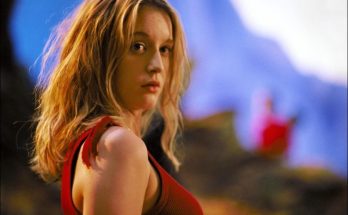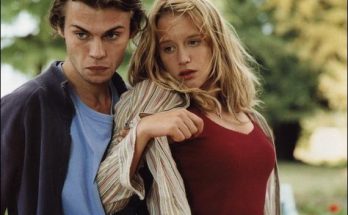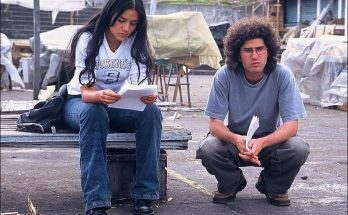Before Sunset Movie Trailer. When Before Sunrise was released in 1995, critics hailed the movie as the most unconventional of love stories – an evening unwinding through the eyes of two strangers experiencing a foreign city and each other for the first time. For audiences, the film recalled the intoxicating promise of youth, in which two people could get off a train unexpectedly to spend an evening talking about everything under the stars.
“It was sort of an anti-Hollywood romance,” says director Richard Linklater of his third film (after Slacker and Dazed and Confused). “In a simple way, it’s a romance for realists. We’re trying to capture something that’s realistic — closer to something that maybe happened in your own life than in a movie. I think the people who connect with it have the same connection that we feel, and that’s why we’re continuing to explore these two characters.”
More than perhaps any other film Linklater had made up to that point, the film’s documentary-like feel particularly resonated through the relationship of Jesse and Celine, which held remarkably true to the rhythms and subtleties of actual romantic encounters. “To my mind, our characters are like the archetypal male/female,” comments Hawke. “We’re trying to talk about the nature of relationships more than we are specifics. We never see them in the context of their day-to-day life. We’re just catching them in these little glimpses.”
Prior to making the first film, Linklater sent Hawke a letter explaining “the idea that he had never been involved with the same kind of action, drama or violence that gets depicted in so many movies, but that his life felt full of drama,” remembers Hawke, who has appeared in five Linklater films (Before Sunrise and its sequel as well as The Newton Boys, Tape and Waking Life). The actor most recently garnered acclaim for his work opposite Denzel Washington in Training Day. “He wanted to try to make a movie about what it was like to really connect with somebody,” Hawke continues. “And that’s been the mission statement of both these films, just to create drama out of the ordinary nature of life.”
“It was very intimate, poetic and special,” comments producer Anne Walker-McBay, who has worked with Linklater since his first film. “It felt, at the time, like we were doing something really unique that hadn’t quite been done before. It also felt like what made the film successful is that it was such a universal experience. Everyone’s had something like that happen, and that’s what we were trying to capture with the first Sunrise, that moment when you meet somebody and something really incredible happens to you.”
Since completing Before Sunrise, principals Hawke, Julie Delpy and Linklater long mused about the possibility of a sequel, or even an entire series of films. “The dream of doing this movie started when we were doing the first one,” comments Hawke. “Wouldn’t it be interesting to meet these characters again in a number of years? Then you’d have this giant document on love and on relationships following two actors through the course of their life. That’s the dream. But it’s fun to come back to a character. It’s also a way of checking in with yourself and how you’ve changed.”
For Delpy, having no resolution to the two characters’ promise on the platform felt like something unfinished in her own life. “It’s such an open ending,” she says. “Having this ending with them leaving each other felt like something was missing in our lives, in a weird way, some place missing inside of us. It was a wonderful thing to be able now to do it.”
For all of the players, the characters of Jesse and Celine continued to live in their minds, and each time they’d see one another, they’d discuss where to take them. Though a myriad of possibilities presented themselves over the years, the idea emerged of doing a film in real time – an hour and a half in the lives of Jesse and Celine. “That’s when we knew we’d found the right idea for it,” comments Hawke.
“We wanted to take the whole idea of a slice-of-life to a new, heightened degree. Following Delpy and Hawke’s cameo in Linklater’s 2001 film, Waking Life, their plans cemented even further, and the trio banged out a detailed outline during several days in Los Angeles. Next, they exchanged ideas and dialogue over email, followed by more meetings in New York and Los Angeles.
“We all felt pregnant with the idea for a while,” says Hawke. “Rick would say, ‘Try to write on this subject, try to write on that subject,’ and then one day Julie busted out a ton of dialogue and that got us going.”
“I started getting e-mails, these wonderful monologues, from Julie for her character,” remembers Linklater. “Julie’s an incredible writer and thinker, and some of these things she’d send would be so funny, real and profound. And then Ethan would send something. This film is coming from a deep place for all of us, but particularly for Julie and Ethan. They’ve dug into themselves so much as writers.”
Before Sunrise left the two characters at a train station with a promise to meet six months later. Before Sunset picks up a little more than nine years later, at a bookstore in Paris. “Before Sunrise follows these two young people who meet on a train and just spend one night together,” explains Hawke. “But it’s so magical and powerful that at the end, they decide they’d rather not write and keep in touch. They’re worried that it’ll just become ordinary if they do that. Instead, they decide they’re just going to meet again in six months to the day. And that’s how the first film ends. The second film starts nine years later and my character has written a book about that one night. And she shows up at his book reading.”
“They both have their own lives,” adds Delpy. “They’ve grown along very different paths, and now they’re more complex, in a way. In Before Sunrise, they were living in this fantasy of being young and seeing the future. But now, it’s all about living in the moment.”
Once the reading is over, Jesse has only limited time before he’s expected to check in at the airport for his flight back to New York. Celine, who lives in Paris, agrees to spend that time having coffee with him at a café she knows. “He has written a novel; he’s on his last book tour and he’s leaving that night,” comments Linklater, “so the time frame is compressed even more. This movie takes place more or less in real time. You get this eighty-five minute encounter between them before he gets a ride to the airport.”
“When I was a little girl I wanted to be in politics,” explains Delpy. “That was my dream. I didn’t go that route because I became an actress really young, and I enjoy it. I don’t regret any of it, but to be able to become in a film what you always dreamed to be is very interesting and fun. I don’t have the chance to explore it fully in my life, but in that character I’m able to draw on all of those feelings. I wanted her to be representative of a generation of women that are very independent but are still very sensitive.”
“Each of them is in a committed relationship, and they’re wondering whether it’s the right choice,” says producer Walker. “I think most of us get married, and I don’t know if anybody doesn’t have a few little doubts as to whether it was the right choice or not. Especially when someone exists that you have powerful feelings for.”
With time running short, the two engage in a complex dialogue about life, love, how they’ve changed, the world, and anything else that occurs to them. “To me, it’s just an examination of how your life proceeds,” says Linklater. “All we can do is live forward and you just do the best with everything around you. It’s very much the way the first film was — just a moment in time. Before Sunrise was roughly 14 or 15 hours in these two people’s lives at a random intersection in a town neither of them lived in. In that film, to me, they were sort of like ghosts in this city that they didn’t really belong to, almost in their own world, this ethereal world of their own imagination. This movie is very much about and takes place in the real world. It’s Paris. She lives in Paris. It’s her world, and it’s very realistic.
As in the first film, Jesse and Celine continue to be self-aware and articulate about life as they observe it. “They’re very contemplative and conscious of their situation,” says Linklater. “I think that some of the tone of the movie is that they’re very verbal and aware, and willing to share their ideas and deeper feelings about their situation. They find themselves in this situation like the first movie, where they were willing to be very open and honest and say things you wouldn’t say maybe to someone you were married to. But you’ll say it to someone you encounter just as a human confessional forum. And slowly, in this movie, they peel off those layers. It takes a little longer maybe to get there, but they do get there.”
“Even though they connect, they really have something that not everybody has,” comments Delpy. “Maybe they’re meant to be together, maybe not. But even when people are perfect for each other, it doesn’t necessarily happen, or if it does, it happens only at the right time.”
While there’s no traditional plot beyond two people reconnecting, Hawke points out that the story is more in the subtle inner workings that make us human. “The character is the story,” he says. “What happens inside our brains and minds, why we behave the way we do, what makes us tick, what do we think is important — the inner life of the characters is the story of the movie. Rick has always experimented with the standard narrative structure. Even starting with Slacker, it really doesn’t have any narrative to speak of, yet it’s engaging. Our life doesn’t work in such a clean narrative. It makes us think that our lives are boring because our lives and even our relationships don’t have beginning, middle and end. It’s never as clear as all that. It’s so much more amorphous.”
About the Production
Before Sunset was developed over an extensive period of time, but written over five months. Production on the film would be on far more challenging schedule – 15 days. “With Before Sunrise, we rehearsed the movie for about four weeks and then we shot it in about five,” says Ethan Hawke. “This second one has been even more intense. We only had a little over two weeks of rehearsal, and we’re shooting it in three weeks. It feels like this one’s a sprint, but we’ve been meditating on this one for a long time.”
The three collaborators found working together as easy as it had been on the earlier films. Linklater praises Hawke’s energy and intelligence. “He comes in and is such a pro and so inspired,” says the director. “He is just so restless. He wants to hit new notes. He wants to explore new territory both in himself and his work, always digging deeper and always trying to find something new that motivates him. It’s fun to be a part of that.”
Likewise, the director relished the opportunity to work with Delpy again. “Julie is one of the most interesting people I’ve ever met and had the pleasure to work with,” he says. “She’s so talented, passionate, beautiful and smart. If nothing else, this movie has been just a great excuse to work with Julie Delpy again.”
Delpy describes Linklater as “laid-back.” She says, “Nothing is a stress. He makes us work hard without making us feel like we’re working hard because he’s so relaxed and knows what he wants. But I don’t think we could possibly all work together if there were not some real friendship. That’s the first thing.”
Hawke, who has appeared in half the director’s filmography, adds, “I believe in Rick. I wouldn’t have made five movies with the guy if I didn’t believe in him. I think I’d like to make five more. Rick has a great feeling of, ‘This is what I want to be doing today. And we may not ever get to do this again.’”
Walker feels Linklater’s ability to combine reality, drama, comedy and much more in his films is extraordinary. “He can get all those aspects of life to occur in such a way that you recognize yourself,” she observes. “He gives you a lot to think about, but it’s always entertaining at the same time.”
Performing the extensive dialogue in the film was challenging but ultimately rewarding for Delpy. “The aim is to converse as naturally as possible,” she says. “Like we’re just starting to chat. But that’s really hard. Every line is written. We’re not improvising on the spot, but it has to seem almost improvised.”
“The only reason this movie is possible is because Julie and Ethan are such incredibly talented actors,” says Walker. “We filmed an eight-minute scene in the car, and they could just go all the way through from start to finish, without one stop, not missing a beat. I think that’s extraordinary.”
The dialogue demands in BEFORE SUNSET are virtually uninterrupted, unlike the first film. “The first one had so much romanticism in it, as much of the movie happened in one night,” Hawke compares. “It’s much harder to have a movie happen in ninety minutes. We have no distractions. The first movie, we had street poets and belly dancers and Ferris wheels and trains. This one is super-stark and super-economical. And more mature and hopefully will be even more heartfelt.”
Linklater felt it important to set the movie in Paris because it is where the character of Celine lives. Accordingly, he was dead set against a tourist’s Paris, but rather wanted to reveal the everyday city where she spends her life. “It’s where she lived in the first movie; it’s where she lives now,” says Linklater. “Paris is one of the great cities of the world, if not the most beautiful. But again, Jesse and Celine are in their own world within this city, so it’s not an ‘Eiffel Tower’ movie. I wanted to avoid that, and yet, you are in Paris so it can’t help but be kind of beautiful no matter what.”
Shot entirely in Paris, France, locations for Before Sunset included well-known landmarks such as the Shakespeare & Co. bookstore on the left bank and a scenic boat trip on the Seine over looking Notre Dame Cathedral. To portray Celine’s apartment, Linklater brought Delpy into the process to advise on what she would like, where she would live, what would be on her coffee table. “I know Paris so well,” she says, “and Richard knows that I know exactly what the character would like and why. It’s a big collaboration, and Rick insists on that. So when we were looking for apartments, he was, like, ‘ Do you think that would be your apartment?”
One particular challenge to a film that unfolds in real time is matching the light. “It’s taking place more or less in real time in a later afternoon, so we really can’t shoot in mid-day,” the director explains.
“If the sun’s overhead, it doesn’t match anything else in the movie, so we have to be getting ready, and then we have these short windows where we can shoot. The whole film is based around the fact that I thought Ethan and Julie could just show up and really nail the performances in a pretty short amount of time. It’s like, ‘O.K. We’ve got the light for two hours. Go.’ Boom. We do the scene. And Julie and Ethan are up for that. I think that energy helps the movie and infuses it with a certain energy. It’s what the movie is about. You have a certain amount of time, limited time. Go.”
The streamlined production schedule demanded everyone’s utmost focus and energy, yet because it was a labor of love, all pushed themselves and each other equally. Delpy describes, “We’d start at six in the morning and finish at sometimes eight o’clock at night. Then I would go rehearse with Ethan for three hours because we have ten more pages of dialog the day after. When we were not working, we were rehearsing. When we were not rehearsing, we were writing. But, you know, I like working that way. It’s hard, but it’s very exciting and fulfilling at the same time.”
“If you work with people again because you like working with them, then even when it’s difficult, it’s always, always fun,” Linklater adds. “It’s like working with family. Yet you push each other really hard and your expectations are really high.”
“I think what makes it exciting is that behind all this hard work, this moment of magic happens, or doesn’t happen,” says Delpy. “But working towards it is what I enjoy in movies, and why I work in movies. I guess everyone finds it in their own fields, but I have to say I found mine in that field.”
For all the risks of the project, all parties found their creative impulses reawakened in the process of making it. “In the first movie, we went for it in our own way, and that’s what we’re doing this time again,” says Linklater. “The stakes are even higher for us with this one. There’s no safety net at all. We all feel that pressure, but that’s good to work under. But I just feel lucky that I got the chance to do this. It’s tough everyday, but fun.”
“I think people telling stories makes you feel not alone in the universe,” Hawke adds. “But doing something that feels like it’s a little outside the normal terrain is thrilling because you might fall flat on your face. But if it works, it’ll also be kind of unique, which is a good life’s goal if you’re involved in the arts at all, to try to find your own voice. And this project is so personal to all of us.”
Before Sunset (2004)
Directed by: Richard Linklater
Starring: Ethan Hawke, Julie Delpy, Vernon Dobtcheff, Louise Lemoine Torres, Rodolphe Pauly, Mariane Plasteig, Denis Evrard, Albert Delpy, Marie Pillet
Screenplay by: Richard Linklater, Ethan Hawke, Julie Delpy
Production Design by: Baptiste Glaymann
Cinematography by: Lee Daniel
Film Editing by: Sandra Adair
Costume Design by: Thierry Delettre
MPAA Rating: R for language and sexual references.
Distributed by: Warner Independent
Release Date: July 2, 2004
Views: 253
